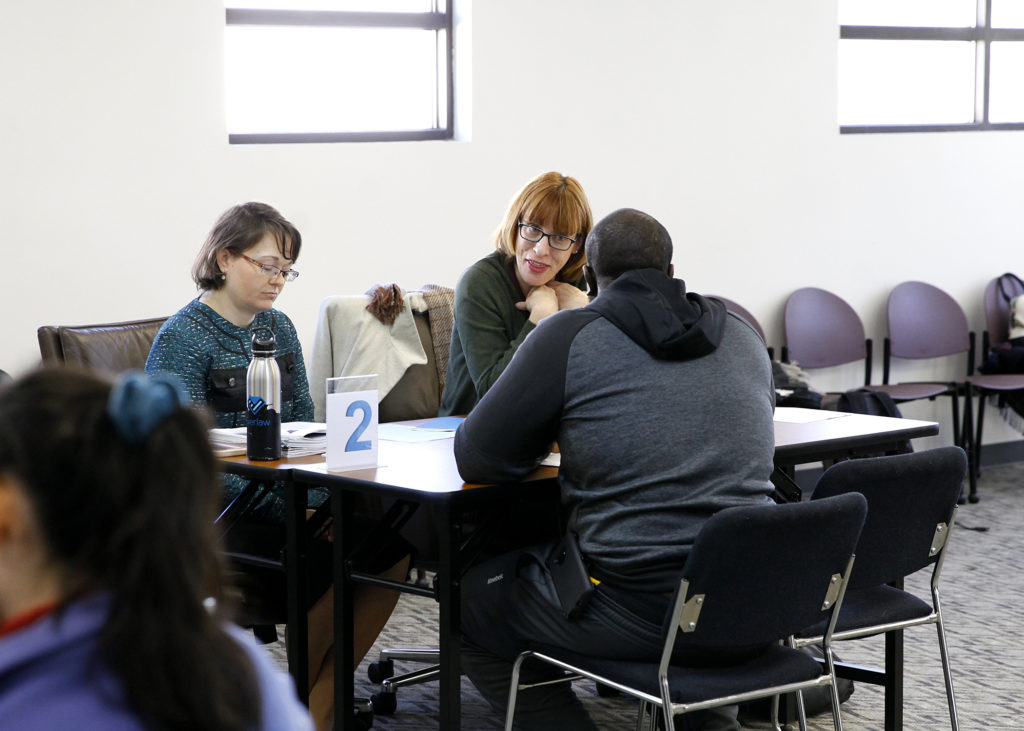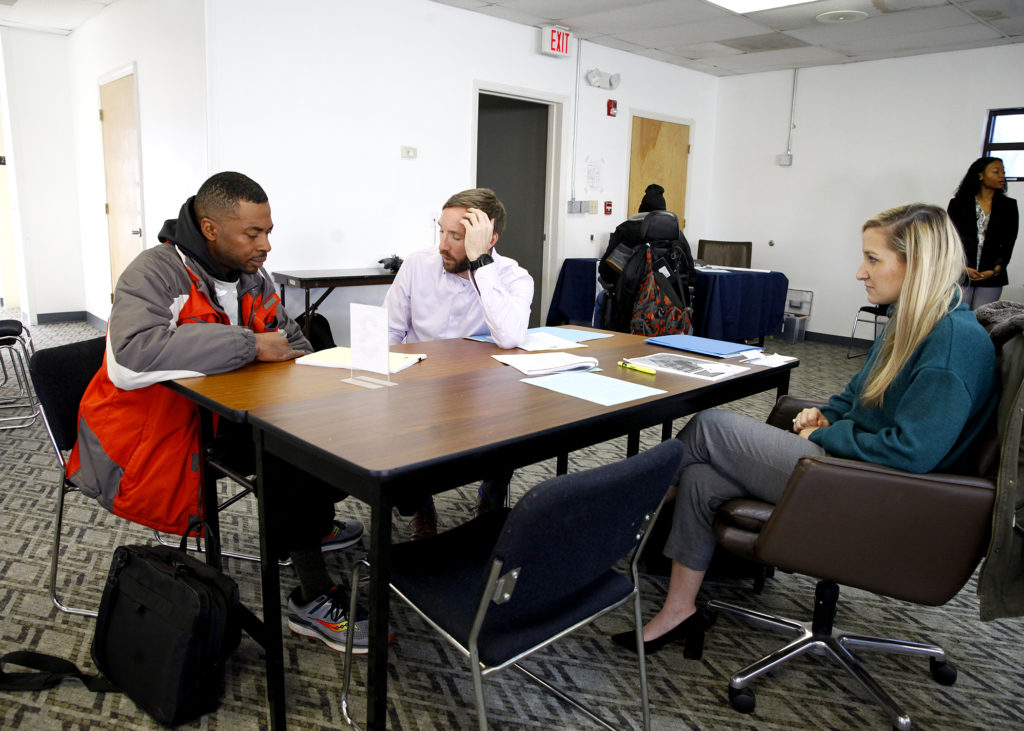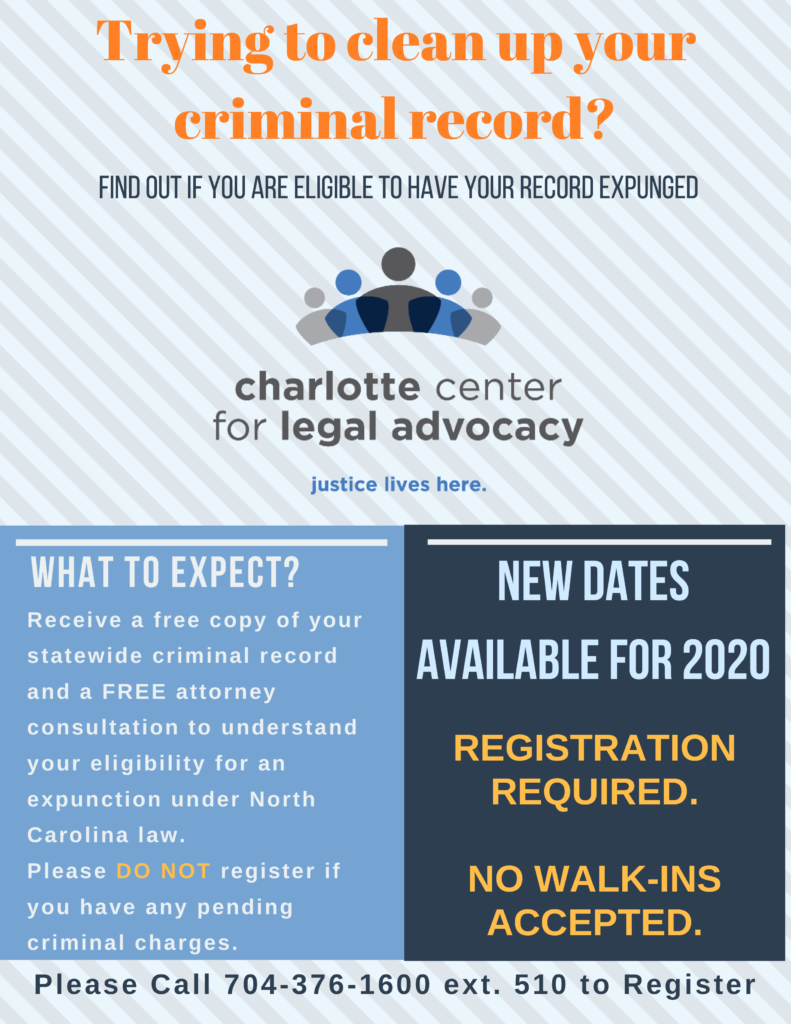Charlotte’s future is in our hands. We have an incredible opportunity to put Charlotte on the path toward equitable, long-term social and economic development.
The Charlotte City Council is considering adoption of the Charlotte Future 2040 Comprehensive Plan, a guiding document that will inform how our city grows over the next 20 years.
Charlotte Center for Legal Advocacy applauds the critical importance the plan places on dismantling the intentional and systemic mechanisms used to segregate Charlotte by race and economic status since World War II.
The plan is rooted in an equitable growth framework that strives to create a dynamic, just, and inclusive city.
But a potential decision to significantly delay the vote on the Charlotte 2040 Comprehensive Plan has concrete consequences: maintaining the unacceptable status quo as last in the nation for upward mobility.
Charlotte did not get here by accident, but rather through decades of deliberate decisions by powerful policy makers and political leaders, as well as refusals to act.
How Charlotte Got Here
Charlotte is more racially and economically segregated today than it was 100 years ago. Residential zoning laws, specifically single-family zoning, have been utilized as tools of racial segregation, white supremacy and socioeconomic exclusion.
Housing options for communities of color and lower-income Charlotteans were drastically limited by exclusionary zoning policies mandating single-family detached homes and minimum lot sizes, by restricted access to federal mortgage financing through redlining and federal housing policy, and by blatantly discriminatory deed restrictions.
If already homeowners, these discriminatory tools worked to artificially suppress a family home’s market value for years. These practices significantly contributed to Charlotte’s racial wealth gap and 50 out of 50 ranking nationally for upward mobility.
We can’t expect true, meaningful change to happen without action. We must take affirmative steps to undo the generations of systemically racist policies that currently shape our community.
Our city, our citizens cannot afford to wait.
As a founding member of Neighbors 4 More Neighbors CLT, we urge the Charlotte City Council to adopt the Charlotte Future 2040 Comprehensive Plan in June.
Without action, segregated development will continue; displacement and limited housing supply will continue, and only those who benefit most from the status quo will continue to benefit.
Myths and Facts About the Charlotte Future 2040 Comprehensive Plan
Though some opposition from builders and developers mistakenly suggests the aspirational goals and proposals made in the plan are “illegal,” the plan is not a regulation, but a guiding outline of Charlotte’s long-term vision for itself.
This broad, equity-based vision lifts up Charlotte’s future.
Why the Charlotte Future 2040 Plan Matters
Adopting the plan now guides the legal and regulatory changes needed for implementation, particularly the finalization of the Unified Development Ordinance (UDO).
The UDO will improve neighborhood inclusion and expand housing options by incorporating middle density housing for the 80 percent of land currently set aside for detached single family homes.
With an expected population growth of 600,000 people in the next 30 years Charlotte must adapt for the future.
We must prioritize adding density in a conscientious manner that ensures affordable housing is expanded. Of course, single-family detached homes can and will be built, the proposed UDO simply offers other, more inclusive options.
It is critical that the 2040 Plan and concomitant regulatory changes provide safeguards to prevent repeat of the racist “urban renewal” policies of the past.
Any affordable housing and home preservation policy must ensure those who already own an affordable home may remain, are not priced out by property taxes, or taken advantage of by predatory, unregulated real estate investors incentivized by increased property values.
Charlotte Center for Legal Advocacy’s priorities include protecting financial security and family stability; preserving and expanding affordable housing options; and addressing systemic racism by advocating for removal of barriers and harmful practices that negatively impact communities of color and lower-income Charlotteans.
We work with homeowners and neighborhood associations to identify problematic practices, educate homeowners about options, and use litigation and advocacy tools as necessary to stop abusive practices.
Having the City and City Council working with us toward these goals is critical to slowing forced displacement, misleading practices, and unwanted gentrification.
Charlotte Center for Legal Advocacy supports the plan’s objectives set out in:
- Goal 2 (Neighborhood Diversity and Inclusion),
- Goal 3 (Access to Housing for All), and
- Goal 5 (Safe and Equitable Mobility).
These goals can be further developed as we move forward, but it is important to have them in place now.
The Charlotte Future 2040 Comprehensive Plan is a cohesive, thoughtful framework needed to guide Charlotte’s development, priorities and legislative advocacy over the next 20 years and is the first since 1975—almost 50 years ago.
Now is the time for action. We need courage and leadership from our elected officials to make bold, visionary decisions now. Doing so is what’s right for all Charlotteans.
With your help, we can build the kind of community we deserve—one that is just and equitable for everyone.
What You Can Do
Join Neighbors for More Neighbors CLT in calling on broad, public adoption of the Charlotte Future 2040 Comprehensive Plan with approval by all City Council members in a June 2021 vote.
- Add your name to the growing list of supporters of Neighbors for More Neighbors CLT and learn more about ways to get involved by visiting the Neighbors for More Neighbors CLT website.
- Join us at upcoming meetings to show your support starting with a virtual Planning Commission meeting today, May 3, at noon. Find a full schedule here.
- Be a 2040 Plan Ambassador






